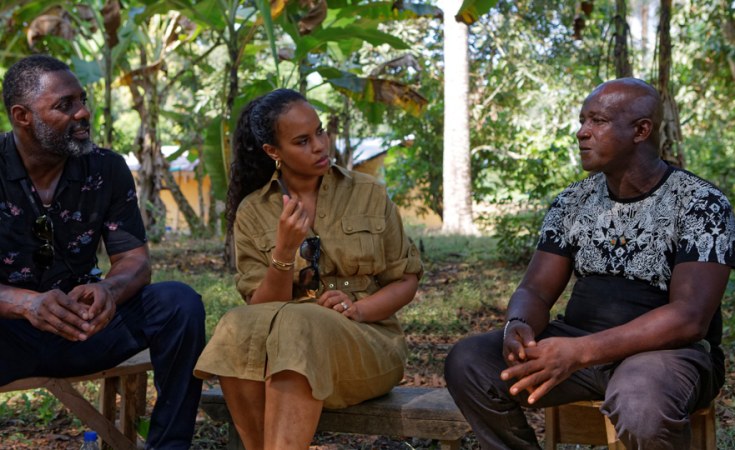The agriculture agency will give $40 million to a fund launched by Idris Elba to help farmers in poor nations. The Thomson Reuters Foundation spoke to IFAD’s president ahead of the announcement.
Since the coronavirus pandemic began to hit developing nations, the International Fund for Agricultural Development (IFAD) has been finding ways to help rural families, many of them poor farmers, including setting up a new fund that was launched by British actor Idris Elba on Monday.
In eastern Senegal, where a curfew and market closures mean it’s hard to sell produce or livestock, the U.N. agency is supporting cash transfers and subsidies via smartphones, and distributing seeds and fertilisers ahead of the planting season.
In India’s Odisha state, it has worked with local authorities to get watermelons transported to markets, avoiding the loss of 600 tonnes of fruit due to the COVID-19 lockdown.
And in Bangladesh, it has helped negotiate the deferral of payments on microfinance loans, while in Tunisia it’s planning to back three month of cash aid payments to 14,000 rural families who depend on daily wage labour that has dried up.
IFAD said on Monday it would put $40 million into a new fund – the COVID-19 Rural Poor Stimulus Facility – to counter the pandemic’s effects on production, market access and employment. The fund was launched by British actor and filmmaker Idris Elba.
The fund also aims to raise at least $200 million more from governments, foundations and the private sector.
The Thomson Reuters Foundation spoke with IFAD President Gilbert F. Houngbo, who was born and raised in rural Togo, West Africa, and served as its prime minister from 2008-2012.
How is COVID-19 affecting rural farmers in developing countries?
What we have been seeing first of all is the psychological impacts when all your daily economic income-generating activity is brought to a standstill, while you know that you don’t have $10 saved that you can rely on. That creates a level of anxiety and nervousness in the community.
From the pure economic side, the very first thing is the logistics dimension – our small-scale producers, they have their produce, but recently all of a sudden they cannot go to the local market where they normally sell it… (nor) the district or sub-regional market.
Hugely the food loss is increasing – we know that (loss) is already beyond 25% … and automatically we feel the impact on the daily income for households.
Do you see a big threat to food security at local, national and global levels?
What we are talking about is the risk of a health crisis creating a food crisis … (but) I think we have to go even beyond the risk of food insecurity and look at it as we, as a global community, going backwards in the fight against poverty.
Since around 1990, every year poverty has been going down, and if we are not careful, 2020 will be the first year when poverty will go up, which is a worrisome thing.
What are some of the solutions?
It is called resilience – building resilience… (But) we really have to ensure that all of us have the same understanding that (it) is not just resilience to climate change shocks. It should mean resilience to all types of shocks. Yesterday it was climate change, today it is health, tomorrow you don’t know.
The second thing, particularly in low-income countries, is to increase the community’s ability to be self-reliant – let’s face it, it will take a bit of time for government institutions to be built up, to be strengthened.
And thirdly, globally speaking … (it) is the social protection schemes at the community level – the minimum social protection is going to be back to the frontline.
On a personal level, what are vulnerable farmers going through right now?
The biggest worry for a farmer who doesn’t have a lot of reserves is when I can get back to my normal activity? The inability to see six months or a year ahead – that is the major worry. Am I going to have access to the fertilisers, to the seeds?
In low-income countries, to be frank, a lot of communities – their trust in the government is quite limited. Can I count on the government? That kind of unknown … is much more difficult. The information that gets from the capitals to the social networks – what is true, what is not true – that gets lost at some point.
On the positive side … rural life builds a natural resilience, so that is already helping rural people to start adjusting. What we are also observing is managing whatever food you have now in a crisis mode – i.e. avoiding any waste, which is now much more conscious in households.
This interview was shortened and edited for clarity.
Source: allafrica.com

